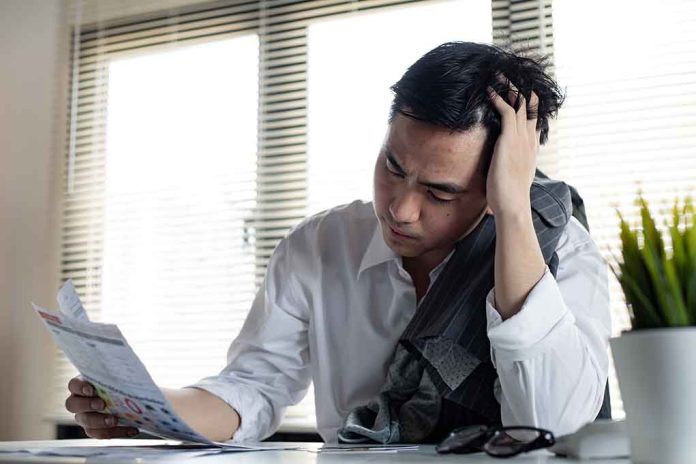
Need a Cash Boost? Check To See If You’re Owed Unclaimed Money!
(RightWing.org) – Do you remember where all of your money is? It seems like a ridiculous question, but roughly one in ten people have lost money they never received or have simply forgotten about. The National Association of Unclaimed Property Administrators (NAUPA) has stated that approximately one in ten Americans are owed unclaimed funds. These funds are currently being held by the federal and state treasuries, allowing Americans to check whether they are owed unclaimed money.
What is Unclaimed Money?
It can be more complicated than one might think to keep track of where all of your money is, especially for those who have multiple accounts at different financial institutions. It is common for people to open several accounts, making it easy to forget about one or two and let those accounts become inactive.
Unclaimed money sounds like free money. It’s a bit more complicated than that. Unclaimed money is funds that you rightfully earned but never received. There are quite a number of sources of unclaimed money to consider. These include:
- Unredeemed Money Orders or Gift Certificates (Only in Some States)
- Utility Security Deposits
- Contents of Safe Deposit Boxes
- Customer Overpayments
- Insurance Payments
- Insurance Refunds
- Mineral Royalty Payments
- Refunds
- Stocks
- Traveler’s Checks
- Annuities
- Certificates of Deposit
- Checking Accounts
- Savings Accounts
- Contents of Safe Deposit Boxes
- Trust Distributions
- Uncashed Dividends
- Uncashed Payroll Checks
Finding Unclaimed Money
Finding unclaimed money doesn’t have to be complicated. The exact process will typically vary by state, so you should start by contacting your state’s treasury department website. Additionally, you can use public data sources, national searches, or even outreach events to learn more about reclaiming your money.
How to Avoid Losing Your Money
States are responsible for returning your funds to you, but the process of applying for and receiving them can be complicated. The best thing to do is avoid losing access to your funds altogether. You can do this by keeping your accounts alive, maintaining your financial records, and keeping your contact information up to date.
Keep Accounts Alive
Most accounts have a time limit where they can be left idle before the company closes them and takes possession of the funds within. To prevent losing access to your account, you will want to ensure that there is recent activity. This includes both checking and savings accounts.
Keeping an account active is as easy as making regular deposits or withdrawals from the account. Doing this will prevent you from having the account become inactive, preventing you from losing access to these funds.
Maintain Records
Keep accurate records of all transactions you make, whether they are cash, check, or property transactions. Even though financial institutions keep up-to-date records, it falls on the account holder to notice and correct any errors on the account. These records can help you keep up with your money and ensure you are not missing out on lost funds.
Keep Your Information Up to Date
When you change your personal information, you can easily forget to update your information with every business you have worked with. It is essential to update your information with your employers and financial institutions. If you don’t, you may miss out on assets that are sent to you, as you will never receive them. The state will then possess these funds until you work to prove they belong to you.
Bottom Line
Many Americans may not realize that they are owed unclaimed money. If you are owed funds, it is essential to claim them. Doing this doesn’t have to be difficult, and you should begin by searching your state’s treasury website. If you have any questions, contact your local office to learn more.
Copyright 2022, RightWing.org






















